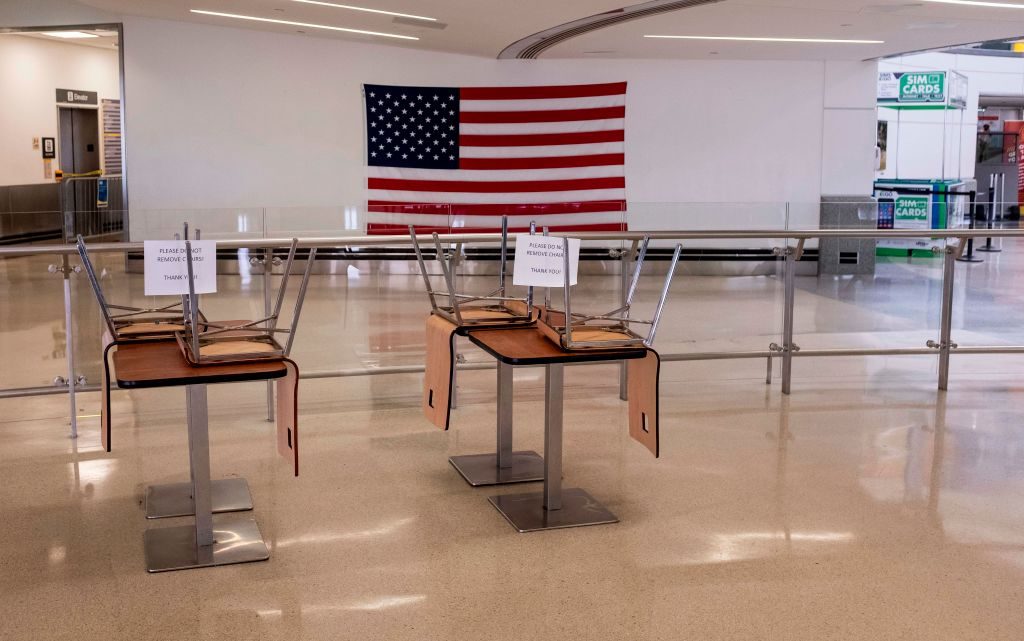Follow the Data Podcast: The Cost of Recovery for Our Cities, Part 1

The coronavirus has hit cities particularly hard – and while mayors are rolling out new guidelines and programs to protect residents, the economic cost of the pandemic is a real challenge for local leaders.
As tax revenues plummet, many cities will experience budget shortfalls. As we’ve seen in the aftermath of disasters from 9/11 to the hurricanes that hit Puerto Rico and the U.S. Virgin Islands, federal aid will be critical to how quickly a city can get back on its feet.
Navigating federal aid is a challenge, even under the best of circumstances – but cities need to get access to the funds they need to operate and recover, and use it effectively.
That’s why our teams at Bloomberg Associates are working with the US Conference of Mayors to help cities better understand how to access and track the Federal programs and funding to support COVID-19 response and recovery. This program is just one of the initiatives Bloomberg Philanthropies is taking on to help mayors confront COVID-19.
To tell us more, Adam Freed, a Principal at Bloomberg Associates, spoke to Natasha Rogers, the Chief Operating Officer of the City of Newark, and Brad Gair, a principal with Witt O’Brien’s, a national emergency management consultancy. This is the first episode in a two-part series around how cities can best navigate, access, and deploy federal aid.
They discuss how cities are using data to drive decision making in response to the pandemic, how federal aid can help them, and how cities can engage and get support from the state and federal government.
You can listen to the podcast and past episodes in the following ways:
- Stream it on SoundCloud.
- Check us out on Spotify.
- Download the episode from iTunes and be sure to subscribe.
- Listen to us on Stitcher – be sure to rate and review each episode!
- Tune in on Simplecast.
For more from our coronavirus series on our podcast:
Our most recent episode, “The Intersection of COVID-19 and Transportation,” focuses on the challenges coronavirus poses for city transportation departments, who need to keep people, goods, and services moving. Janette Sadik-Khan, a Principal at Bloomberg Associates and Chair of NACTO, sat down with Corinne Kisner, Executive Director of NACTO, and Mark de la Vergne, the Chief of Mobility Innovation for the City of Detroit, to discuss how cities are continuing to run transit systems while keeping their own staffs safe.
“Behind the Scenes of the Johns Hopkins Coronavirus Map” was adapted from “Public Health On Call,” a new podcast from the Johns Hopkins Bloomberg School of Public Health. Dr. Josh Sharfstein, Vice Dean for Public Health Practice and Community Engagement at the Johns Hopkins Bloomberg School of Public Health, and Beth Blauer, executive director of Centers for Civic Impact at Johns Hopkins, discuss how the global COVID-19 tracking dashboard was made, what new features have been added, and how data can help individuals and officials make informed decisions for COVID-19 response.
Dr. Josh Sharfstein also joined Jessica Leighton, who works on our Public Health program, to discuss crisis response for public health practice and what makes COVID-19 different from other recent outbreaks in a recent episode entitled, “Responding to a Pandemic Crisis.”
Darren Walker, president of the Ford Foundation, one of Bloomberg Philanthropies’ co-funders in the NYC COVID-19 Response & Impact Fund, sat down with Megan Sheekey, who leads Strategic Partnerships at Bloomberg Associates, to talk about how the coronavirus is affecting social service and cultural organizations in “How to Help Nonprofits Hit Hard by COVID-19.”
In the first episode of our coronavirus series, “World War C – Us Against the Microbe,” Dr. Tom Frieden, the President and CEO of Resolve to Save Lives, joined Dr. Kelly Henning, who leads the Public Health program at Bloomberg Philanthropies and was the former Director of Epidemiology for the City of New York, to discuss the global response to COVID-19.